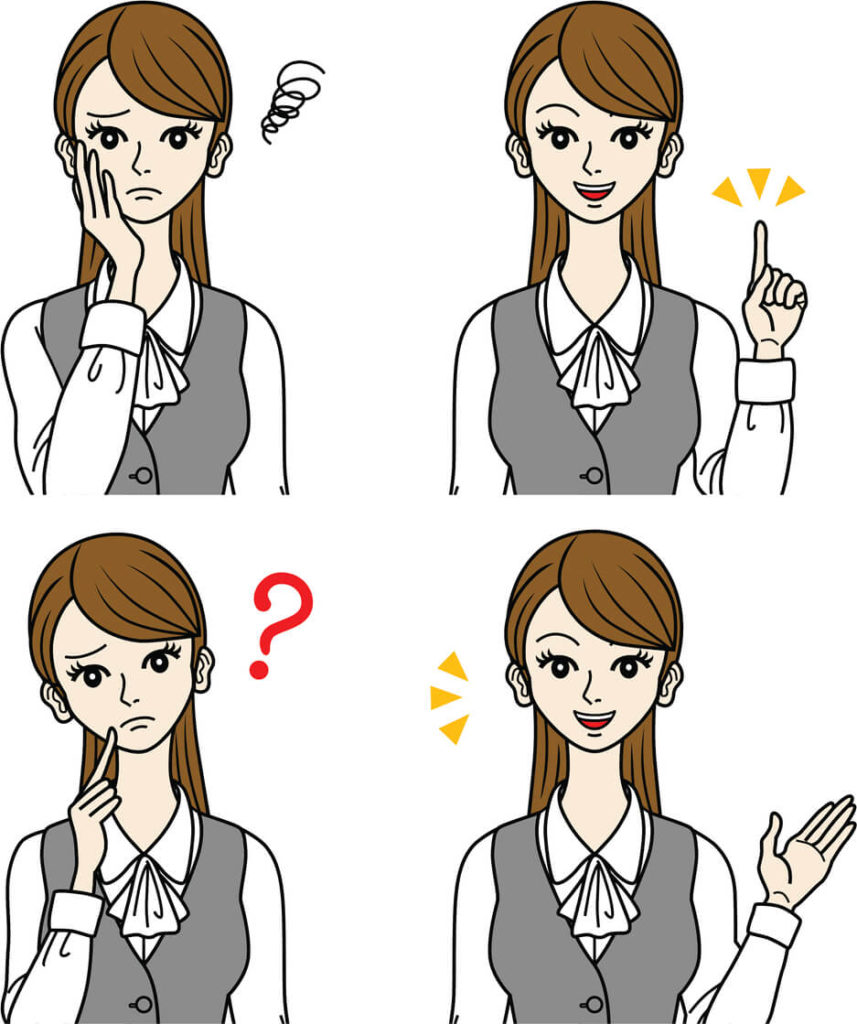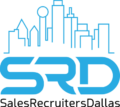When going through an interview, it’s easy for our brains to freeze up when asked, “Do you have any questions for me?” Every single interviewer or recruiter will always ask if you have questions. That’s not them trying to put you on the spot. Well, it is their chance to evaluate your thinking abilities. But, in general, it’s a genuine concern and would be lousy of them if they didn’t ask.
Instead of drawing a blank, you could prepare ahead of time to nail the question stage. In all honesty, this is your prime opportunity to turn the tables and evaluate THEM.
Recruiters are here to HELP you. So, don’t be afraid to reach out to your sales recruiter or hiring manager. Here are 17 questions to help get you started and spark some ideas.

1. Who will I be talking to?
Nine times out of ten, you will be given the name of who you will be interviewing with. However, if not, the first question to ask your recruiter is the interviewer’s name and their role at the company.
Write down their name and role so you won’t forget it. This info will come in handy in the pre-interview preparation stage. Based on their position, think about what you want to know about their day-to-day tasks or personal experience.
We also advise you to look up their name on LinkedIn. This will help you become familiar with their background and personality ahead of time.
2. What type of questions should I expect?
Another question you should ask your recruiter before the interview involves the actual interview questions. Don’t forget this one! Of course, your recruiter cannot give you a full list so that you’ll know exactly what will be asked. That would defeat the purpose of the interview.
But what they can tell you is if you’ll be asked situational, behavioral, calculatable, or fact-based questions. Sometimes it is a mix of all four. Knowing what type of interview questions to expect will help you determine the best ways to prepare.
3. What would you do if you were in my shoes?
This is a personal question that digs deep into the mind of your recruiter. Everyone has a different insight to offer. Everyone approaches situations (interviews) differently. And once upon a time, your recruiter had to go through their own interview process to land the role they are in now.
So, use their experience to your advantage as well. Ask them what they would do and how they would be acting or feeling if they were in your shoes. Chances are, you will be presented with a new perspective you did not think of before.
4. What distinguishes a great candidate from a mediocre one?
Part of a recruiter or hiring manager’s job is helping you put your best foot forward. They want you to be a great candidate for the prospective company. So, why not ask them what separates a stellar candidate from a bland one?
Aside from gathering insider information, this question demonstrates professionalism. It means you want to know how to exceed the company’s expectations before you even get hired. Pay attention to the hiring manager’s response and fuse their answer into how you present yourself during the actual interview.
5. Do you have any insight into the company’s work culture?
Culture is critical. It dictates how well you will fit into the company and how well it aligns with your values and beliefs.
Well over 50% of executives say that company culture will influence productivity, firm value, creativity, and overall happiness & retention of employees. Needless to say, culture can either make or break an organization.
Your sales recruiter should get the company culture information from the prospective company. If they cannot provide that knowledge, seek it out via your interviewer. If there’s one question you want to ask, it’s this one.
6. How long have you recruited for the company?
Consider this question small talk. It is an excellent way for you to learn more about the actual recruiter. What sort of relationship do they have with the company? How well do they know the inner workings of the company?
If they have not been working together very long, they might not have access to deep insight compared to someone who has been delivering talent for many years. If there is a longstanding relationship, the recruiter might have more sway over the hiring decision as well.
7. So, why are they hiring for this position?
Frame it in terms of goals and growth. While it may be tempting, don’t ask if the position opened because of a firing. Sometimes you can infer that information based on the hiring manager’s response, anyway. You might also frame the question like this, “What created the need for this open position at [company]?”
Asking this question will help you understand the job position much better. It will also offer insight into what’s going on within the company at the current time.
8. When does the position need to be filled?
Ask how soon they expect a hiring decision to be made. So, why is this a great question to ask a recruiter before a sales interview? It’s simple.
You’ll get a clear timeline on when the company will (or will not) hire you. Do they plan on hiring someone in a few weeks or maybe days? Timelines will help you know which sales interviews to put first. In 2016, the average hire time was about 39 days.
Keep something in mind. If there is no clear deadline taking priority, you might be waiting for a very long time to hear a final verdict. This can be a waste of time if they are just casually interviewing for a position they “might” need in the future.
9. Could you describe the interviewer’s personality?
LinkedIn is an excellent way to see the background history of your interviewer. But what is their core personality? What do they value in a candidate? Are they serious, or do they enjoy a good joke?
Ask your recruiter what the interviewer’s personality is like. For example, if they are more conservative or modern, etc. Their answer depends on how well they know the individual on a personal basis, naturally. While having a good personality is important for you as a candidate, it’s important for the other as well.

10. If I am hired for this role, what happens next?
There is no harm in assuming you will be hired. After all, we want to remain optimistic, right? However, there is a difference between optimism and arrogance. Keep this question open-ended. In the sales industry, acceleration is praised. Companies want to know you have big goals and will sell hard for the company, thus, getting a promotion to make even more money.
But for the purpose of this conversation, focus on those first initial steps that come after getting hired. Will someone contact you? How soon will you be notified? Is there anything you have to do before accepting the position? Get up to speed on what to expect throughout the entire process.
11. What type of updates/communication should I expect from you?
You will be talking directly with the recruiter before the interview. Since they are working on behalf of the hiring company, the initial conversation definitely won’t be the last. They might be upfront about communication and tell you how often you’ll hear from them.
If not, ask what to expect in terms of type & frequency of communication. Will they call, text, or email you? Either way, it is pretty typical to hear back from your recruiter after the interview to see how it went.
12. Do you foresee any challenges I might face?
Always ask your recruiter this question before an interview. We recommend ending the initial conversation with this prompt. It will give you an opportunity to see where you might have weak points in your experience or skillset.
For example, if they point out one particular skill that is lacking, you can try to use your experience to beef up that skill during the interview. This is one method for positively counteracting weakness and showing your ability to learn and adapt your skills.
13. Do you have suggestions for interview attire?
Get ready to dress to impress. According to a survey by NVISION, a stunning 95% of interviewers think that a candidate’s appearance during an interview directly reflects their professionalism. This survey taught us that body odor and casual dressing were two no-nos. Avoid loungewear like the plague and do a BO smell check before leaving the house.
When in doubt, ask your recruiter how you should dress for the interview. We live in an age of virtual conversations, so you might only need to focus on what can be seen via video. However, remember this. When you look good, you feel good, and that is evident even through Zoom or Skype.
14. What qualities are the most important to them?
This is another essential question to ask before an interview happens. You probably already know the basics behind the hiring organization. But do you know what qualities they are seeking in an employee? What are the qualities of their current top performers?
Always ask what the company considers to be their ideal candidate. Do they seek out go-getters, or do they prioritize organization skills? Asking this prompt will help you gain leverage over the competition.
15. Should I prepare to take any tests?
A lot of companies used personality tests to screen potential employees in the past. However, we’ve seen a decline in personality tests. But that doesn’t mean organizations are not using other types of tests. For example, you might need to take a basic aptitude test that ranks your ability to perform certain tasks or calculations.
Ask the sales recruiter ahead of time if you’ll need to take a test. Usually, these exams are scheduled before your one-on-one interview takes place. If not in person, expect a proctored test online.
16. Do you have feedback from past candidates?
The recruiter, if not new, has likely had candidates interview with your prospective company before. It never hurts to ask, regardless of their time with the organization. You can frame the question something like this, “Have you had candidates interview with [company]. If so, did they give you any feedback on the experience?”
Hearing past interviewee’s experience is a golden gem of information that can better prepare you for the interview. Bonus points if the feedback is based around the exact person you’ll be chatting with.
17. How long do interviews usually last?
Every interview is different like we’ve mentioned. Once you know who you’ll be talking to and where the discussion will take place, you should have a vague idea of the length. Still, it is always a good practice to ask the recruiter to get a clear answer.
Most interviews usually take 15 minutes at the quickest and 45 minutes to an hour at the latest. So, you might get a similar answer as a general rule of thumb. However, we recommend blocking off at least an hour- just in case. Blocking off more time rather than less will give you a better opportunity to prepare as well.
Skip the Interview and Go Straight to a Dallas Recruiter
Are you looking for a job in the sales industry in Dallas, Texas? Our team can help you find the perfect sales position that aligns with your objective, future goals, and current skill set. We will connect you straight to hiring companies to expedite your job search.
If you are trying to fill a sales-based role within your company, Sales Recruiters Dallas can also help you hire the perfect candidate. We use a hands-on approach that’s proven to get results and makes the hiring process a breeze.
Learn more about us to hire talent or get hired sooner rather than later.

